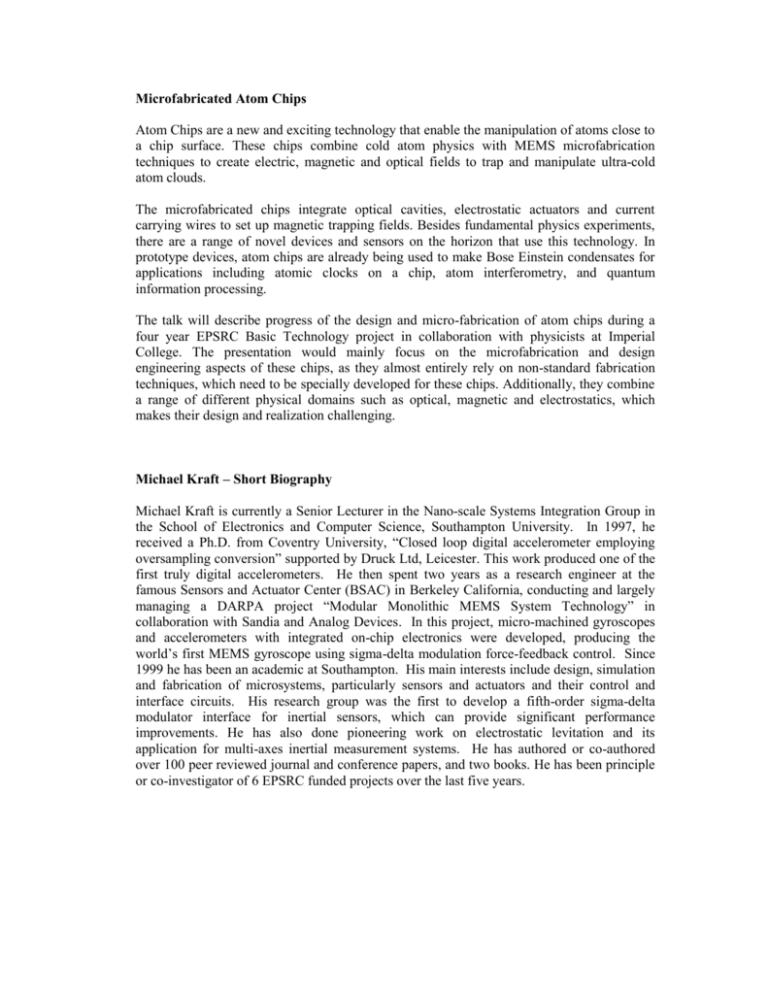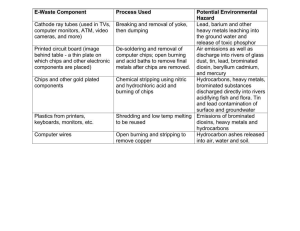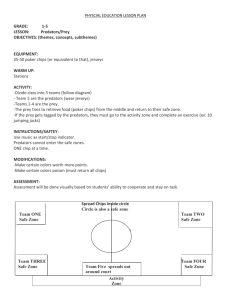Microfabricated Atom Chips
advertisement

Microfabricated Atom Chips Atom Chips are a new and exciting technology that enable the manipulation of atoms close to a chip surface. These chips combine cold atom physics with MEMS microfabrication techniques to create electric, magnetic and optical fields to trap and manipulate ultra-cold atom clouds. The microfabricated chips integrate optical cavities, electrostatic actuators and current carrying wires to set up magnetic trapping fields. Besides fundamental physics experiments, there are a range of novel devices and sensors on the horizon that use this technology. In prototype devices, atom chips are already being used to make Bose Einstein condensates for applications including atomic clocks on a chip, atom interferometry, and quantum information processing. The talk will describe progress of the design and micro-fabrication of atom chips during a four year EPSRC Basic Technology project in collaboration with physicists at Imperial College. The presentation would mainly focus on the microfabrication and design engineering aspects of these chips, as they almost entirely rely on non-standard fabrication techniques, which need to be specially developed for these chips. Additionally, they combine a range of different physical domains such as optical, magnetic and electrostatics, which makes their design and realization challenging. Michael Kraft – Short Biography Michael Kraft is currently a Senior Lecturer in the Nano-scale Systems Integration Group in the School of Electronics and Computer Science, Southampton University. In 1997, he received a Ph.D. from Coventry University, “Closed loop digital accelerometer employing oversampling conversion” supported by Druck Ltd, Leicester. This work produced one of the first truly digital accelerometers. He then spent two years as a research engineer at the famous Sensors and Actuator Center (BSAC) in Berkeley California, conducting and largely managing a DARPA project “Modular Monolithic MEMS System Technology” in collaboration with Sandia and Analog Devices. In this project, micro-machined gyroscopes and accelerometers with integrated on-chip electronics were developed, producing the world’s first MEMS gyroscope using sigma-delta modulation force-feedback control. Since 1999 he has been an academic at Southampton. His main interests include design, simulation and fabrication of microsystems, particularly sensors and actuators and their control and interface circuits. His research group was the first to develop a fifth-order sigma-delta modulator interface for inertial sensors, which can provide significant performance improvements. He has also done pioneering work on electrostatic levitation and its application for multi-axes inertial measurement systems. He has authored or co-authored over 100 peer reviewed journal and conference papers, and two books. He has been principle or co-investigator of 6 EPSRC funded projects over the last five years.








